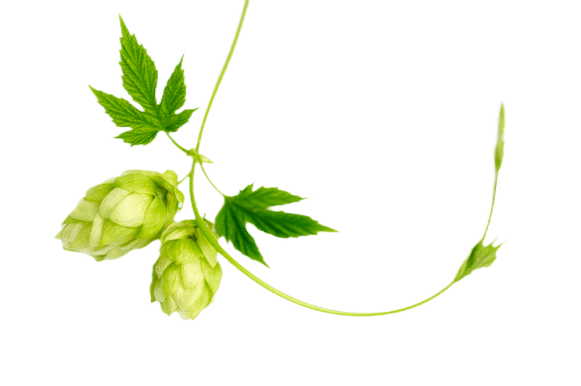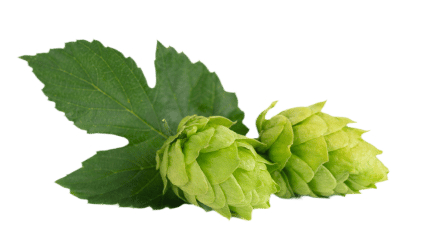Climate change: Stroud Brewery uses climate-resilient hops
By Steve Knibbs & Bea Swallow
BBC West, West of England
New varieties of organic hops that are resilient to climate change are being trialled by UK beer makers.
The Innovative Farmers Hop Trial aims to boost the cultivation of UK crops after falling production levels.
Researchers have identified five experimental hops which show resilience to disease and warmer temperatures.
Taking part in the trial, Stroud Brewery Managing Director, Greg Pilley, said: “The underlying issue is climate change – our weather is changing.
“UK summers are becoming wetter and more humid and less reliable, and it’s making hop growing more challenging,” he added.
Falling revenues
According to growers, traditional non-organic hop varieties grown in the UK- like Fuggle and Goldings- are under increasing stress from issues like climate change, disease, insects, and low nitrogen availability.
They have also seen a fall in demand due to changing consumer tastes towards tropical flavours, produced by hops that have been imported from countries like the US.
As part of the trial, the Stroud Brewery created two beers using Endeavour and Harlequin hops – which can be grown in warmer temperatures.
The organic hops also include a variety called 302, which produces flavour notes of pineapple, strawberry laces, blackcurrant, spice and lemon.
Rich Davies, from Charles Faram- a beer merchant in Worcestershire which helped to run the programme – said although these varieties would not provide the same intensity of taste compared to those like Mosaic, Simcoe or Citra, brewers could switch out 30% of those hops with Harlequin.
“You’re not going to notice any discernible differences in the finished beer but it’s more sustainable, there’s less miles travelled from the farm, and it’s more cost effective for brewers as well so it helps all around,” he said.
He added this project has been the first time they have seen new organic varieties produce a bigger yield.
“Animals would eat the hops, they’d be attracted by the floral scent, and then they wouldn’t like the bitterness so they’d spit it out,” said Will Rogers, also from Charles Faram.
“So that helps the hop plant to spread it’s seeds. These in theory, could have acreage expanded of them.”
Mr Pilley from Stroud Brewery, which has always been organic, said he felt vindicated in his long term ambition of proving that there was a market for sustainable beer.
He now hopes to gather data on the increased biodiversity and soil carbon on the organic hops farms, to help bolster the environmental credentials of the beer it sells.












